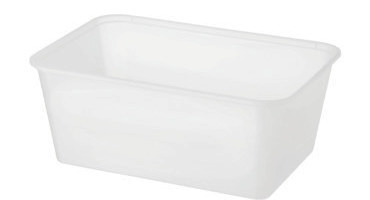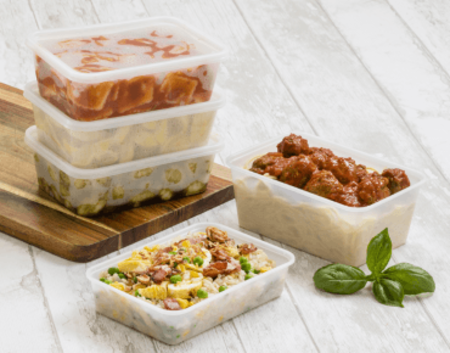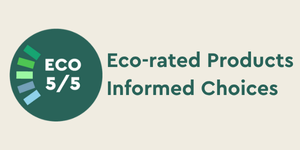Is it safe to freeze food in plastic containers
Freaking out a bit about freezing food in plastic?
Not to worry. The Insinc team has done some research to help debunk common freezer myths and allay all your fears.
Benefits of frozen food
Freezing food has numerous benefits. Firstly, the frozen fruit and vegetables we buy at the supermarket tend to be picked and frozen at the time of their peak ripeness and nutritional levels. So, in terms of nutrition, frozen foods will give fresh produce a run for its money, particularly those vegetables left in the fridge for a couple of weeks before being eaten.
Freezing food right
And if you do it right, freezing food does not reduce its quality. The enemy of frozen food is freezer burn: air coupled with moisture forming ice crystals. Extracting air from packs, using containers with good seals will see your frozen goodies from the garden or leftovers through their winter hibernation.
 Freezing in plastic
Freezing in plastic
Which brings us on to the next issue: freezing in plastic. There is a lot of information out there about plastics and food storage and a lot of it is contradictory. The only thing even the reputable scientists can agree upon is that they really don’t know for sure.
It’s an urban myth
In fact, there's an email attributed to Johns Hopkins University that did not actually come from the university. It is apparently pure urban myth. The email says water bottles shouldn’t be frozen as they release dioxins. On the university’s website, however, they disown this email and refute the claim. In the article 'Researcher Dispels Myth of Dioxins and Plastic Water Bottles', it apparently says: "There are no dioxins in plastics. In addition, freezing actually works against the release of chemicals. Chemicals do not diffuse as readily in cold temperatures, which would limit chemical release if there were dioxins in plastic, and we don't think there are."
I’m no scientist, nor am I a cancer expert, so because there is limited scientific evidence on the use of plastics for food packaging and their general safety, here’s my take.
Plastic, plastic everywhere
Food containers are just one link in a massive chain of plastic products that touch things we eat, from coated conveyer belts in food production lines to milk bottles, biscuit trays and bags your fancy lettuce comes in. Most food containers are made of low-density polyethylene (4) or polypropylene (5).
Nobody, including the researchers, is exactly sure how much chemical exposure occurs from food packaging and storage containers, but they are sure that plastic isn’t a completely stable material: when exposed to heat in the microwave or dishwasher, polyethylene and polypropylene can break down. So, according to the Cancer Society, as there is limited evidence, err on the side of caution. Plastic containers can be used for freezing food but should be replaced if damaged and you should take care with washing and when heating them.
Take a walk on the safe side
Those 'handy' takeway containers do fall apart in the freezer, which can't be a good thing and we really should pop them in the recycling (check the recyling number on the bottom). The way to ensure the containers you put your food into don't crack and break apart, is to opt for containers that are made with a specially formulated, crack-resistant polypropylene material that means you can freeze them without them becoming brittle. Designed for easy stacking and labelling, they are ideal for creating individual portions of food such as pastas, rice dishes, stews and more. And what's even better, they are made from recyclable, food-grade, BPA-free polypropylene.
 The answer
The answer
Freezing food in plastic appears to be fine but, once you’ve eaten your delicious frozen leftovers, only put plastics into the dishwasher if they have a dishwasher safe label. We can help you out with microwave safe and freezer safe plastic containers that don't leak or spill, unlike those annoying takeway containers whose lids always split.
So what do we know about freezing food in plastic?
Right now, effects from plastics cannot be completely ruled out and while the science is still being figured out, some experts recommend taking a preventive approach. So, from what we can gather, it is fine to freeze in some plastic containers, but it is important to follow directions on how to wash and re-heat food. Plastic containers should be turfed out if they’re damaged.
Bottom line
Cutting down on plastics probably won’t affect your cancer risks but it may have environmental benefits. If you’re concerned about your carbon footprint, focus on reducing the environmental impact of everything you buy, not simply on reducing plastic use. At Insinc Products we choose to use and promote eco-friendly and sustainable products as much as possible because we have a firm belief in doing what we can to save our environment. Not sure which is the right product for you? If you would like advice on what sustainable products to use at your business or place or work, call us on 0508 467 462.
We're always happy to help!
Posted: Tuesday 23 March 2021


